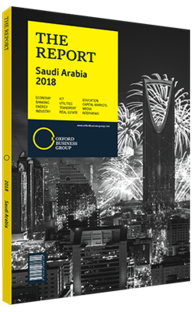Saudi Arabia joins international agreements to standardise logistics
In its efforts to become a logistics trading hub linking Asia, Africa and Europe, Saudi Arabia has taken concrete steps to comply with the highest international standards in freight handling. In July 2016 the Kingdom signed the World Trade Organisation’s Trade Facilitation Agreement (TFA) and in March 2017 it announced its decision to join the UN Economic Commission for Europe’s International Road Transport (Transports Internationaux Routiers, TIR) Convention. Both provide frameworks that help reduce costs and enable the more efficient transport of goods across borders.
Trade Facilitation
The TFA came into effect in February 2017 with acceptance by two-thirds of the organisation’s member countries, including Saudi Arabia. It is estimated that the new measures will lower trade costs by 14%, reduce the time it takes to import goods by one and a half days and cut export time by two days. TFA provisions require clearer and well-publicised information about border procedures and practices, improved appeal rights for traders, reduced fees, and faster clearance procedures for improved cooperation between Customs officers and other authorities.
Streamlining Trade
A month after the TFA became effective, Saudi Arabia hosted a delegation from the International Road Transport Union (IRU). The IRU is responsible for printing the TIR Carnet, which is the international Customs document and proof of guarantee that is designed to facilitate the transport of goods between Customs offices at the vehicle’s departure point and destination. Once the TIR Carnet has been issued, the vehicle normally remains sealed and its goods are generally not inspected at border crossings. TIR rules do, however, allow some random searches or vehicle inspections when Customs officers suspect an offence has been committed. In order to ensure vehicle containers are correctly sealed and not misused, the TIR Convention has specific technical requirements for the design of load compartments of vehicles and containers to avoid smuggling. Customs departments also have the authority to grant or deny permission for specific carriers to use the TIR system.
Ahmed Alhakbani, director-general of Saudi Customs, welcomed Umberto de Pretto, secretary-general of the IRU, to Riyadh and emphasised the Kingdom’s commitment to begin implementing the TIR Convention in 2017. “Our aim is to communicate its simplicity, efficacy and compelling capability to transform the region’s trade potential,” de Pretto said after the workshop.
Improving Performance
Adoption of the TIR Convention and the TFA demonstrates the Kingdom’s determination to improve the transport and logistics sector in accordance with the National Transformation Programme (NTP) 2020 and Saudi Vision 2030. The TIR Carnet or its electronic equivalent is allowed on any consignment provided that part of the journey is completed by road, and it will also apply to sea ports processing containers being shipped through the Kingdom. The NTP acknowledges that the average stay of containers in ports was high at 14 days in 2016, and set a key performance indicator to reduce this to five days by 2020. At Jeddah International Port an inter-agency government pilot project was undertaken in 2017 to reduce the stay time to 24 hours, with plans to apply this standard to all ports in the country.
In 2017 Saudi Arabia was ranked 52nd out of 160 countries in the World Bank’s Logistics Performance Index (LPI), but Vision 2030 suggests the country should be aiming for 25th place. The relatively lower scores for Customs handling, logistics quality and timeliness weighed on Saudi Arabia’s overall rank. Respondents to the LPI survey also reported that physical inspection of goods was commonplace at the Kingdom’s Customs points, and that in 14% of cases a container might be subjected to multiple physical inspections.
The TIR system is used by the UAE and was also adopted by Oman and Qatar during 2017. If adopted across the entire GCC, additional significant efficiencies could be achieved in Saudi Arabia’s external trade.
You have reached the limit of premium articles you can view for free.
Choose from the options below to purchase print or digital editions of our Reports. You can also purchase a website subscription giving you unlimited access to all of our Reports online for 12 months.
If you have already purchased this Report or have a website subscription, please login to continue.

